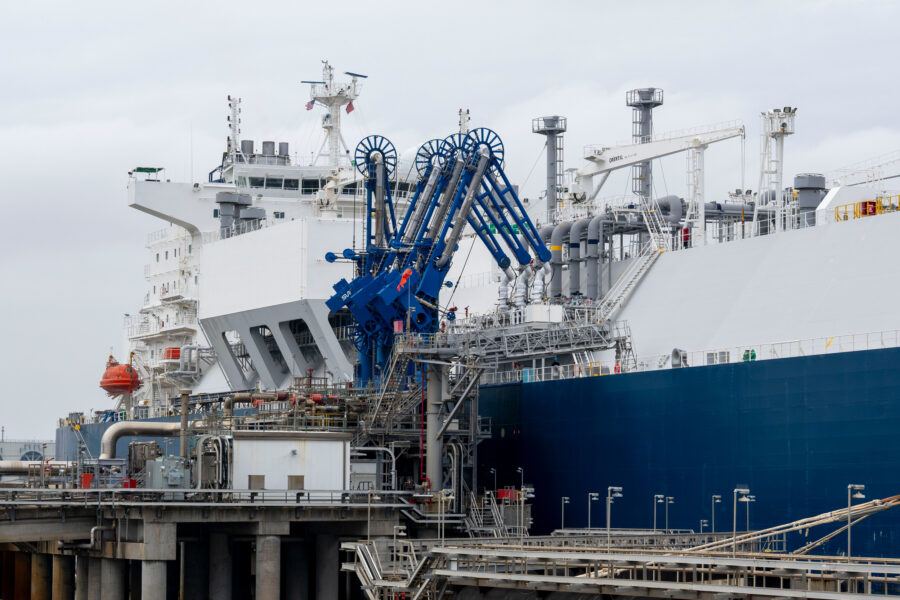The long-term future of Canada’s tar sands suffered a blow Thursday when TransCanada announced it would cancel a major pipeline project. The decision on the line, which could have carried 1.1 million barrels of crude from Alberta to the Atlantic coast, sets back efforts by energy companies to send more of the oil overseas.
The Energy East project had slumped through three years of regulatory review. Over that period, the price of oil collapsed, dragging down the prospects for growth in production in the tar sands, which is among the most expensive and carbon-intensive sources of oil.
In a statement, TransCanada said that the decision came after a “careful review of changed circumstances.” The company said it expects to write down an estimated $800 million after-tax loss in its fourth quarter results.
Simon Dyer, Alberta director for the Pembina Institute, a Canadian environmental research group, said darkening prospects for the oil sands doomed the pipeline.
“There does not appear to be a business case for the project,” he said in an email.
Andrew Leach, an economist at the University of Alberta’ School of Business, said “the economics have just turned against it entirely.”

In 2014, the Canadian Association of Petroleum Producers projected tar sands production would more than double to 4.8 million barrels per day by 2030. By this year, that growth forecast had been cut significantly, to 3.7 million barrels per day by 2030. That would still be an increase of about 50 percent from today. The association says Canada’s oil industry will need additional pipelines to move that crude, and gaining approval has proved challenging.
Last year, the Canadian government rejected one proposed pipeline while approving expansions of two others—one to the Pacific coast and a second, Enbridge’s Line 3, to the United States. Each of the approved projects is meeting significant opposition, however.
The Keystone XL pipeline, which would carry tar sands crude to the U.S., was approved by the Trump administration this year, but also faces obstacles. The project must still be approved by regulators in Nebraska, and the company recently said it was waiting not only on that process, but also to gauge commercial demand, before deciding whether to proceed.

Kevin Birn, an analyst with IHS Markit, said he thought the slow regulatory process, rather than changing market conditions, led TransCanada to cancel the Energy East project. In August, Canadian regulators said they would consider the indirect climate emissions associated with the pipeline as part of their review process, a step that was sure to delay approval, if not doom it.
Birn, whose firm worked on an economic analysis for TransCanada as part of the regulatory process, said he still sees growth in the tar sands, but that each cancelled or delayed pipeline could dim that outlook. “Something like this is not good in the sense it creates additional uncertainty for the industry,” he said.
Rachel Notley, the premier of Alberta, whose economy relies on oil production, said in a tweet: “we’re deeply disappointed” by the cancellation.
About This Story
Perhaps you noticed: This story, like all the news we publish, is free to read. That’s because Inside Climate News is a 501c3 nonprofit organization. We do not charge a subscription fee, lock our news behind a paywall, or clutter our website with ads. We make our news on climate and the environment freely available to you and anyone who wants it.
That’s not all. We also share our news for free with scores of other media organizations around the country. Many of them can’t afford to do environmental journalism of their own. We’ve built bureaus from coast to coast to report local stories, collaborate with local newsrooms and co-publish articles so that this vital work is shared as widely as possible.
Two of us launched ICN in 2007. Six years later we earned a Pulitzer Prize for National Reporting, and now we run the oldest and largest dedicated climate newsroom in the nation. We tell the story in all its complexity. We hold polluters accountable. We expose environmental injustice. We debunk misinformation. We scrutinize solutions and inspire action.
Donations from readers like you fund every aspect of what we do. If you don’t already, will you support our ongoing work, our reporting on the biggest crisis facing our planet, and help us reach even more readers in more places?
Please take a moment to make a tax-deductible donation. Every one of them makes a difference.
Thank you,














